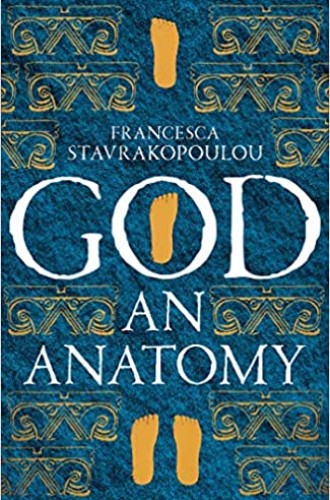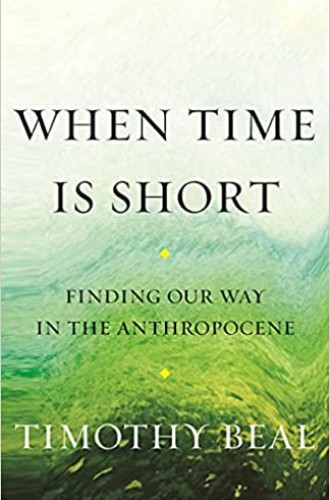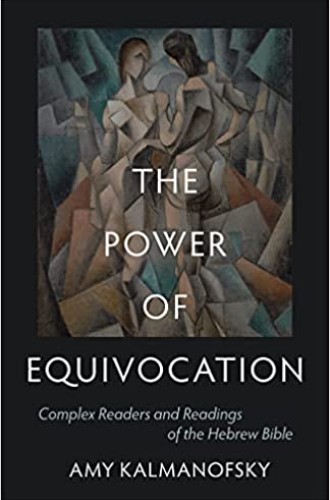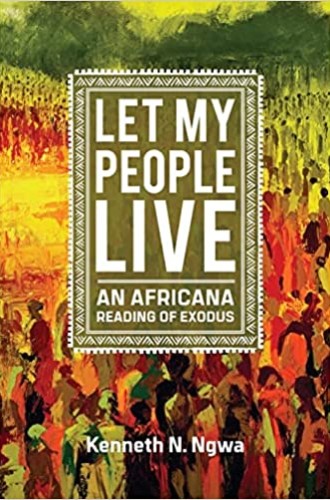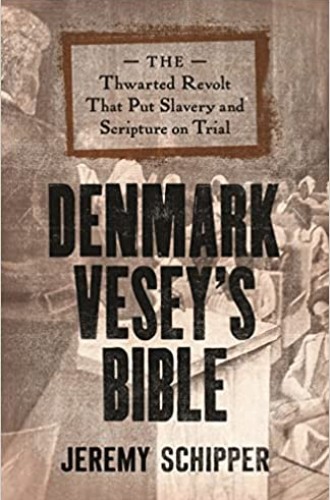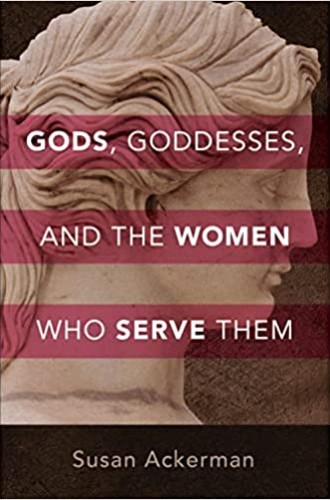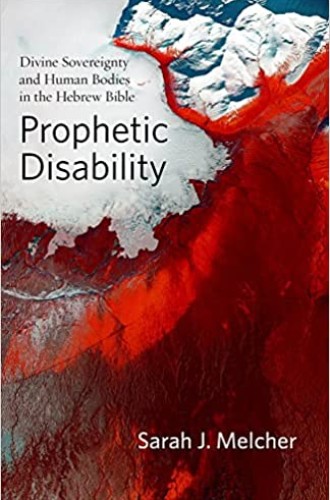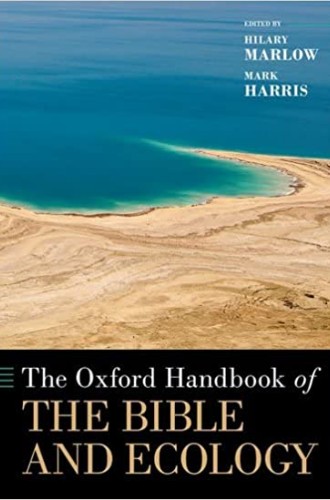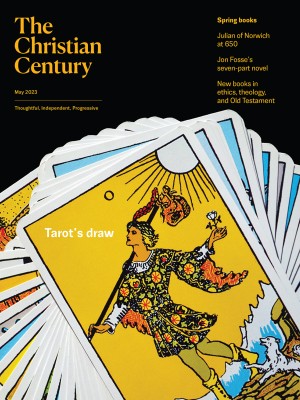By Francesca Stavrakopoulou
Alfred A. Knopf
For centuries, readers of the Hebrew Bible understood its unabashed descriptions of God’s corporeality to be strictly metaphorical. Recently, however, biblical scholars have asserted that the God of scripture does indeed have a body. In this erudite and compulsively readable book, Francesca Stavrakopoulou explores each aspect of God’s anatomy, from his head to his feet and everything in between. Stavrakopoulou gives us a vivid sense of God’s decidedly male—and even sexy—body, illuminated against the backdrop of the ancient West Asian world. How did we go from a virile young deity who emanates red-hot light to an abstract enigma confined to the heavens? In addition to helping us see the most ancient contours of God’s body more clearly, Stavrakopoulou tracks some of the key cultural moments in the life of God that led to his disembodiment in both Christian and Jewish traditions.
When Time Is Short: Finding Our Way in the Anthropocene
By Timothy Beal
Beacon
In this provocative book, Timothy Beal encourages readers to make peace with the possibility that it’s too late for humans to be saved. He proposes a palliative approach in which we cultivate a biblical sense of earth creatureliness rooted in “indigenous cultural practices of subsistence in and with the land and other creatures” and animated by a deep awareness of our “fragile impermanence.” While modern capitalism and Christian convictions about human exceptionalism have conspired to bring us into this precarious moment known as the Anthropocene, the Bible mostly views humanity as decidedly unexceptional. Humans are compared to worms, depicted as creatures of the dirt, and said to be as evanescent as grass. Beal encourages biblically inspired practices of subscendence (as opposed to transcendence) so that we might live more fully and relationally in what may be the late stage of our collective life.
Read our latest issue or browse back issues.
The Power of Equivocation: Complex Readers and Readings of the Hebrew Bible
By Amy Kalmanofsky
Fortress
How might people with competing allegiances read the Bible? When Amy Kalmanofsky foregrounds her identity as a feminist to reveal the patriarchal infrastructure of the Hebrew Bible, she is compelled to conclude that it is irredeemable for women and should be deposed as a sacred text. And yet, in her role as a rabbi, she finds herself a more “generous reader” who encourages students to stay in dialogue with the Bible “as a text that continues to shape their values and their spirits.” By owning both her feminist and Jewish identities, Kalmanofsky models an “equivocal reading” of scripture—one that embraces the tension that lies at the heart of her identity and is embedded in the biblical text, which “intends to be polyvalent and welcomes inconsistencies and employs minimal verbosity in order to be expansive in meaning.”
Let My People Live: An Africana Reading of Exodus
By Kenneth N. Ngwa
Westminster John Knox
In this thoughtful book, Kenneth Ngwa looks to Exodus both to critique modes of empire and as a resource for shaping life-giving alternatives. He shows how Egypt, like so many imperial forces, strives to erase and alienate the Hebrews and to reduce their identity as “a mixed multitude” to a crushing singularity. In the biblical story, such oppression catalyzes the demand for liberation (“let my people go”) and creates space to name the particularities of oppression. But Exodus, read with the philosophies and traditions broadly known as Africana, also provides a powerful resource for the oppressed to imagine and create a life of flourishing that defies such oppressive systems (“let my people live”). As Ngwa puts it, “for Africana, Exodus is more than about the liberating movement of one generation out of Egypt toward the promised land; it is also about transforming structures of oppression in the multiple locations that the story identifies.”
Denmark Vesey’s Bible: The Thwarted Revolt That Put Slavery and Scripture on Trial
By Jeremy Schipper
Princeton University Press
In 1822, Denmark Vesey, a formerly enslaved man who owned a thriving carpentry business, used the Bible to help recruit people of African descent to join a slave rebellion that would culminate in the mass murder of the slave-owning families in Charleston, South Carolina. The plot was thwarted and, after a sensational show trial, 35 conspirators were executed and 37 exiled. In Denmark Vesey’s Bible, Jeremy Schipper uses court records, sermons, firsthand accounts, and letters surrounding the quashed revolt to determine how the Bible fueled Vesey’s imagination and shaped White Charleston’s response. He finds that Vesey was a charismatic orator who used biblical texts, such as the Exodus story, to make a public case against slavery; in private, however, Vesey used a different set of texts, including Joshua 6:21, to exhort his coconspirators to “perform biblical roles that would strike a lethal blow against slaveholders.”
Gods, Goddesses, and the Women Who Serve Them
By Susan Ackerman
Eerdmans
Given her career-long focus on women and goddesses, it is perhaps too obvious to think of Susan Ackerman as a bit of a goddess herself, but her command of the relevant literary and material sources does verge on the superhuman. This collection of Ackerman’s seminal essays traces her development into one of the field’s most gifted feminist scholars. She meticulously adjudicates questions about goddesses and the women who worshiped them. Which goddess was known as the Queen of Heaven in Jeremiah? Who maintained her cult? Was Asherah worshiped as the patron deity of spinning and weaving in ancient Judah, maybe even in the temple complex? Why are there no priestesses in the Bible? For those committed to learning about the women and goddesses relegated to tiny spaces between and behind the lines of the Hebrew Bible, this is a book to savor.
Prophetic Disability: Divine Sovereignty and Human Bodies in the Hebrew Bible
By Sarah J. Melcher
Baylor University Press
In this wise text, Sarah Melcher, who has been at the center of scholarly conversations about the Bible and disability for decades, carefully considers how disability is featured—both productively and problematically—in prophetic literature. With attention to the texts’ literary and social-historical contexts and theological convictions, Melcher argues that for the prophets, themes of disability and divine sovereignty are deeply related. She takes seriously both the Bible and the experiences of people who live with disabilities, judiciously leading readers through textual analysis. When she hits an ethical or theological dead end, she gently helps us accept that the text’s take on disability is unhelpful and points toward healthier formulations in the Bible and beyond. This book will facilitate open discussion about perceptions and experiences of disability in the ancient world and today.
The Oxford Handbook of the Bible and Ecology
Edited by Hilary Marlow and Mark Harris
Oxford University Press
In 1967, the historian Lynn White Jr. charged the Judeo-Christian tradition—fueled by what he saw as the Hebrew Bible’s pervasive emphasis on dominion—with special responsibility for the environmental crisis. The essays in this edited volume consider White’s catalyzing arguments while moving the conversation about the Bible and ecology forward in creative new ways. The volume coheres around a conviction that in the Bible and in today’s world, healthy relations with the natural world are a precondition for thriving communities, and those relations can become tragically perverted, with disastrous and terrifying consequences. Each author reminds us that the Bible is a tremendous resource for those who aspire to more copacetic, reciprocal ways of living with the land, God, and one another.


